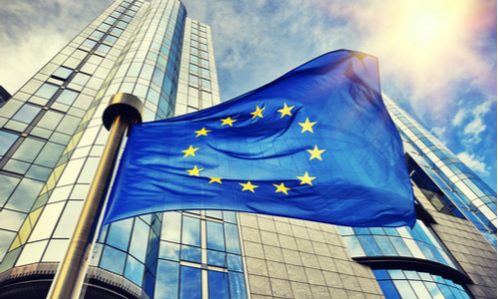
The European Union (EU) has been accused of rampant protectionism after launching an unexpected “anti-subsidy” investigation into China’s electric vehicle (EV) makers. The reaction has been swift, with both the Chinese government and industry body representatives voicing their criticism towards the EU’s actions.
China’s top auto industry official stated that Chinese EVs were retailing at nearly double the prices in mainland markets. According to Cui Dongshu of the China Passenger Car Association, “China’s new energy vehicles exports are seeing stronger volumes not due to huge state subsidies, but because of the highly competitive China industrial supply chain from strong market competition domestically.”
The Eurasia Group analysts also weighed in, noting that “Brussels’s willingness to go after a key Chinese export underscores growing protectionist tendencies in Europe, as the EU seeks to compete with China and the US on the green and digital transitions. If the EU finds harm from Chinese subsidies, Brussels is likely to impose tariffs on Chinese EVs despite the risk of political and economic backlash from Beijing.”
Read more: EU Investigates Chinese Electric Vehicle Subsidies for Market Protection
China has accused the EU of “blatant protectionism” and believes the investigations were made in the name of “fair competition” as a way to protect its own industries. Beijing is worried that Brussels’ actions will have a serious disruptive effect on the global automotive industry and supply chain, and will have negative implications for the economic and trading relationship between China and the EU.
EU members have become increasingly vocal on the need for the bloc to shield European carmakers from Chinese EVs which are allegedly heavily subsidized by Beijing. However, China is urging the EU to view the development of the EV industry objectively instead of introducing trade barriers and restrictions.
It remains to be seen how much protectionism the EU is willing to pursue, as its options for providing subsidies and state aid are limited due to uneven authority among the members. Debate continues to rage around Europe, as it attempts to carve out a space for itself between China and the US on key transitions like the green and digital transitions.
Source: CNBC
Featured News
Big Tech Braces for Potential Changes Under a Second Trump Presidency
Nov 6, 2024 by
CPI
Trump’s Potential Shift in US Antitrust Policy Raises Questions for Big Tech and Mergers
Nov 6, 2024 by
CPI
EU Set to Fine Apple in First Major Enforcement of Digital Markets Act
Nov 5, 2024 by
CPI
Six Indicted in Federal Bid-Rigging Schemes Involving Government IT Contracts
Nov 5, 2024 by
CPI
Ireland Secures First €3 Billion Apple Tax Payment, Boosting Exchequer Funds
Nov 5, 2024 by
CPI
Antitrust Mix by CPI
Antitrust Chronicle® – Remedies Revisited
Oct 30, 2024 by
CPI
Fixing the Fix: Updating Policy on Merger Remedies
Oct 30, 2024 by
CPI
Methodology Matters: The 2017 FTC Remedies Study
Oct 30, 2024 by
CPI
U.S. v. AT&T: Five Lessons for Vertical Merger Enforcement
Oct 30, 2024 by
CPI
The Search for Antitrust Remedies in Tech Leads Beyond Antitrust
Oct 30, 2024 by
CPI